Introduction
- Practical and realistic transport policy cognizes key factors ( Department of transport, 1994).
- The 2002 transport policy in the UK taxes car drivers on CO2 emissions (Glaister, 1996).
- Cars are convenient means of transport in UK.
- Car ownership is a norm among UK households.
- The impact of car rise raises concern leading to introduction of transport tax policy (Cossa, 2008).
- Issues surrounding the policy covered in the paper.
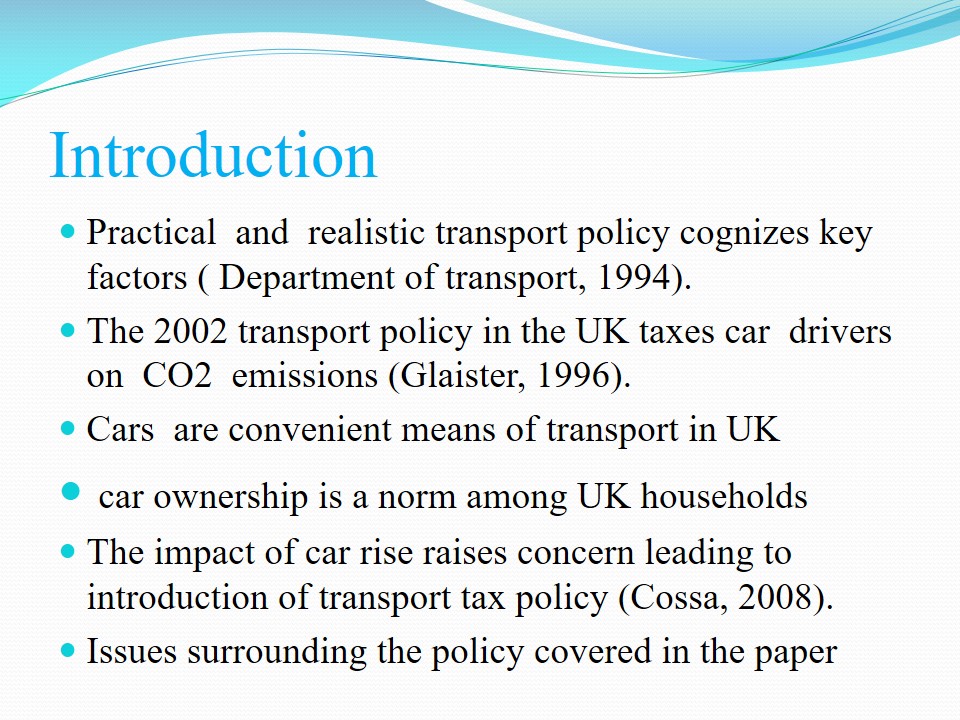
Background information
- CO2 causes the earth’s temperature to rise (EMCT, 1995).
- The effects are disasters; tornadoes, droughts and frequent floods.
- There is the threat of rise in sea level.
- There is climatic changes.
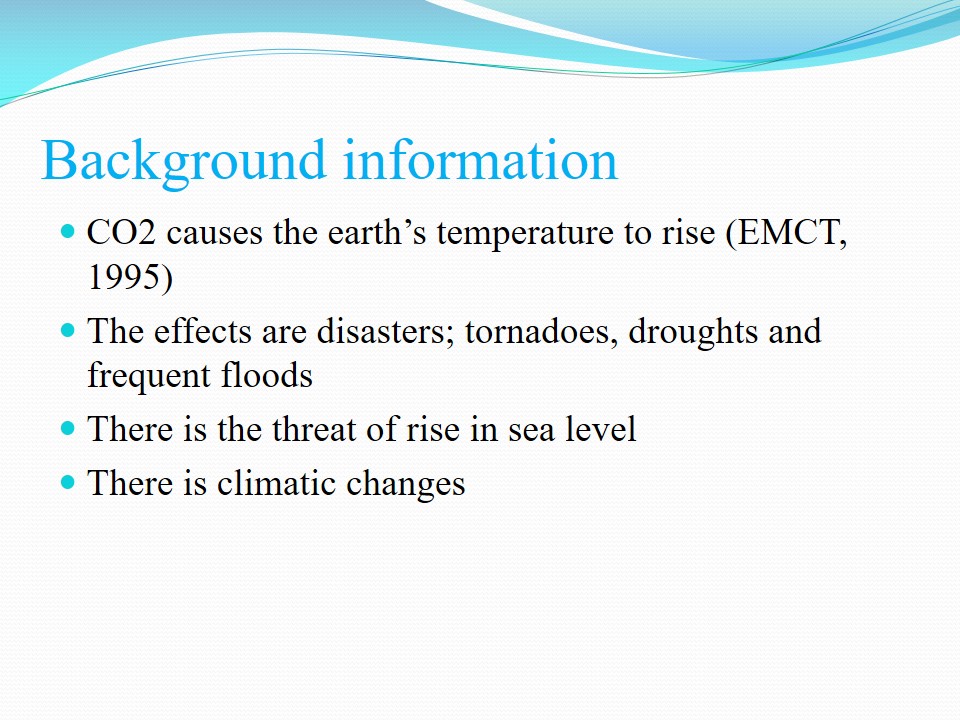
Environmental and Equity Concerns about Transport
- The rise in car ownership in UK raises concern on its impact on the environment, the quality of life and the ecosystem ( Department of Environment, 1998).
- Of concern is the conflict between the policy and social inclusion basing on living standards.
- Environmental concerns about transport falls into; energy consumption, global warming and pollution and its effects (EMCT, 1995).
- Implementation of the transport policy is as a result of statistical data from these concerns (Department of Transport, 1994).
- Issues addressed conform to the current environmental demands.
- Data used is not in line with current environmental challenges.
- As a result of this a political debate is inevitable.
- Rise in sea level impacts on aquatic life (Dawe 2007).
- Food policy makers need to find solutions concerning shortage of aquatic fresh foods.
- Climatic changes influences the twenty first century lifestyle ( De Young, 1996).
- Many challenges arise in dealing with rise in sea level.
- The policy fails to differentiate between environmental concerns of Manchester and those of better global environmental practices.
- Human policies in settlement, commerce, and transport are affected by heavy precipitation (Dawe, 2007).
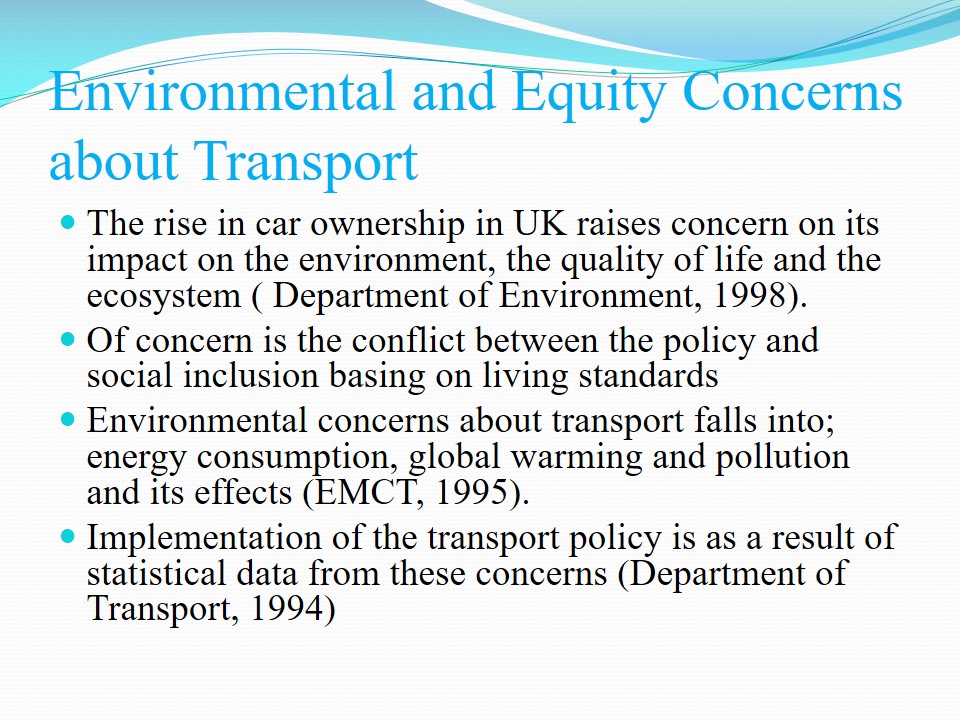
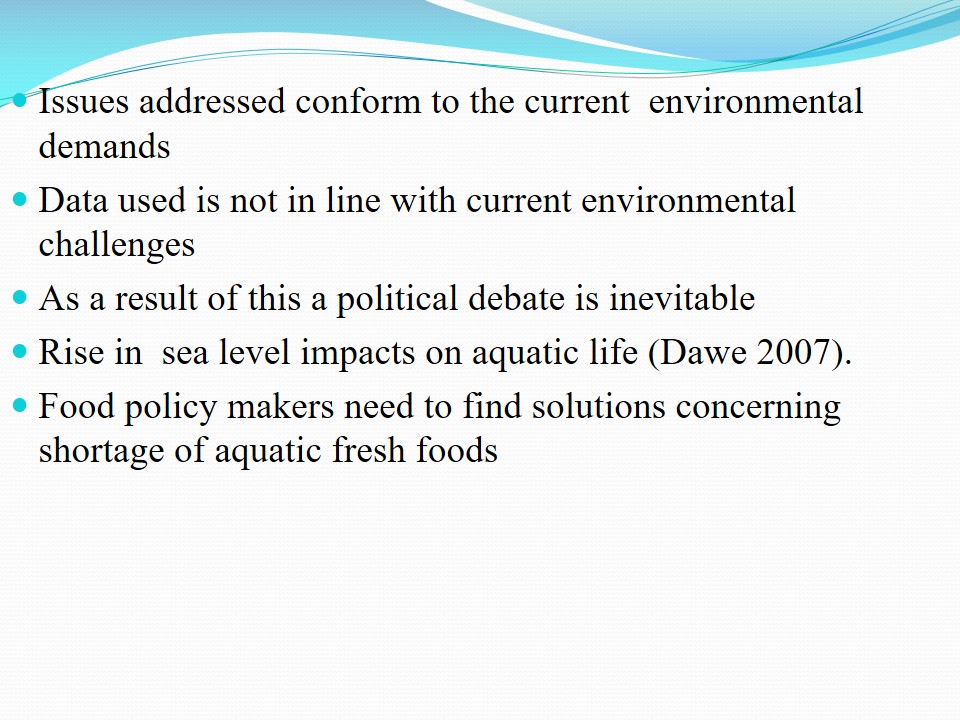
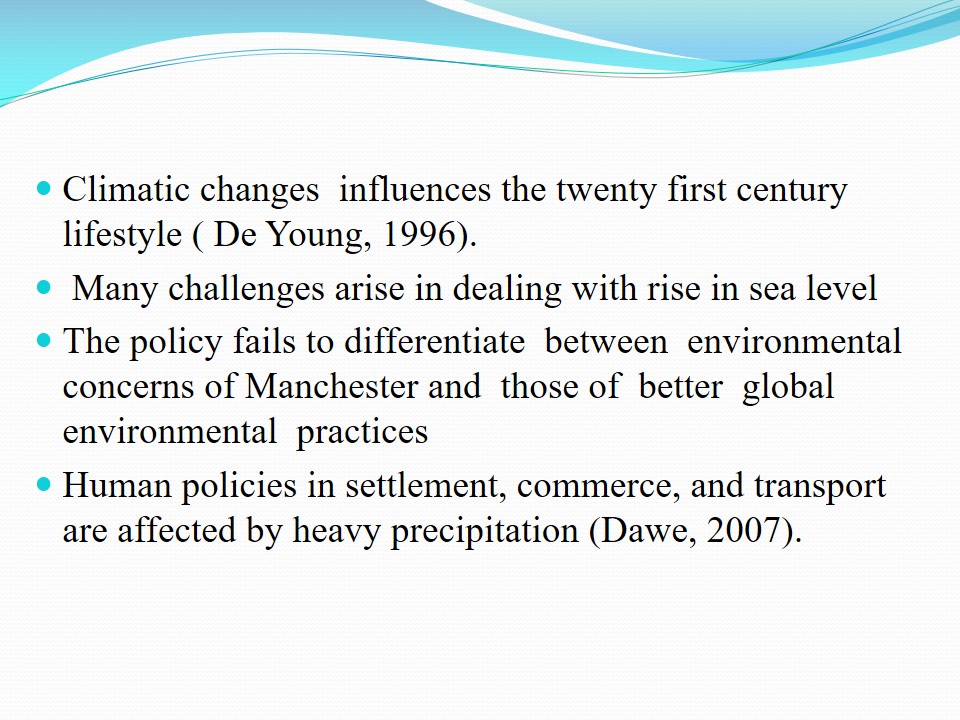
Political issues
- Opposition on the issue comes the building and construction industry.
- Analysis of the policy issues influences designs and methods of construction.
- Life cycle assessment analyses the environmental situation basing on the manufacturing of products and its implementation improves the environment (De Young, 1996).
- The building goal of the 21st century is t cut levels of energy intake (De Young, 1996).
- Consumers having knowledge on goods manufacturing makes them shy away from goods and services whose production affects the environment (Dawe, 2007).
- Reduced distortion on current tax structure leads to economic growth (Cossa, 2008).
- Raising of tax wanes confidence on investors, and depresses economic growth.
- Long range average costs are increased due to a lump sum tax increase.
- Equilibrium price increase causes each firms’ output increase (Cossa, 2008).
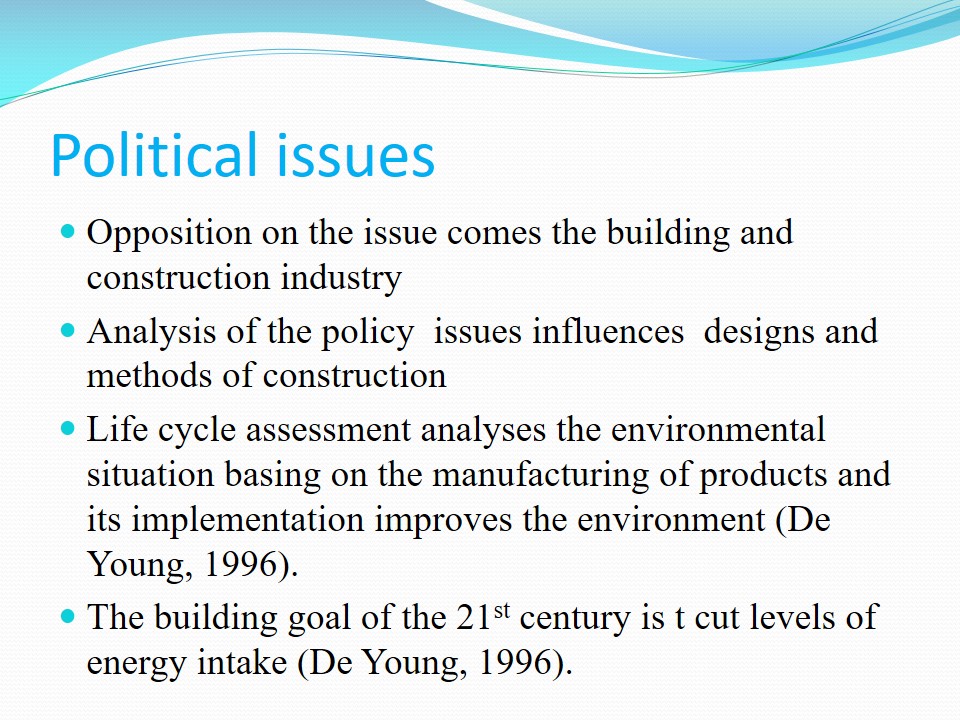
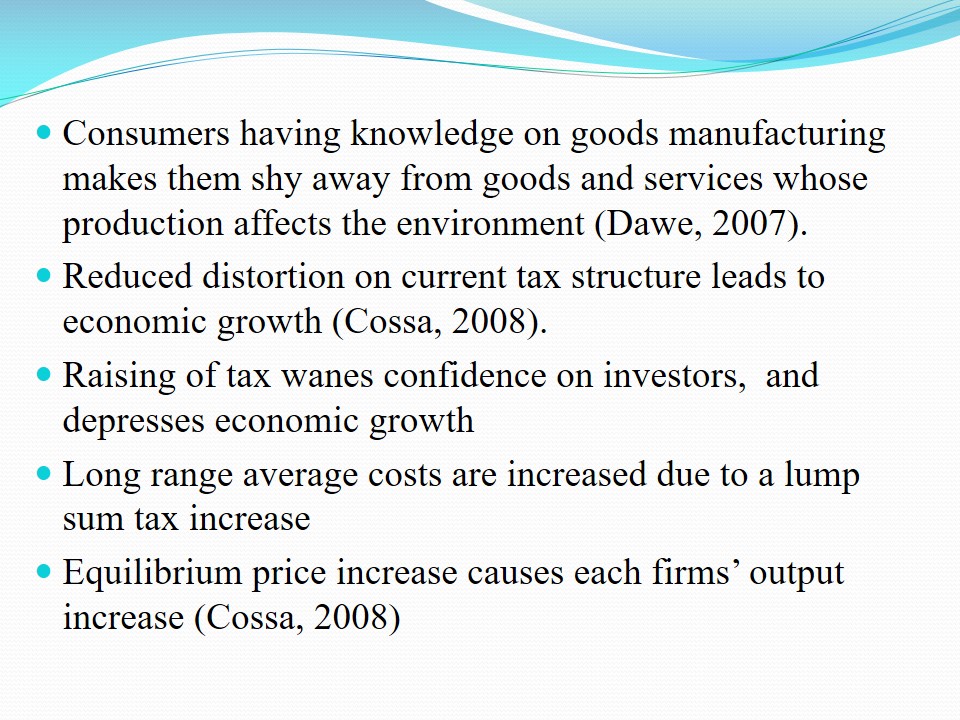
Recommendations
- The implantation process should stopped basing on facts highlighted.
- The policy lacks protection for locals who are most affected.
- Critical issues lack enough consideration.
- To achieve central objectives, consider; transport not separated from lifestyle, public transport sufficient to solve the issues of car increase.
- People need real figure on how such policies impact on environment.
- Development of universal transport policy that offers effectiveness.
- Effectiveness of tax increase is inadequate for political leaders, government agencies and locals to make sound decisions concerning it (Cossa, 2008).
- Options presented by policy formulation committee lack variety due to lack of data in the region of consideration.
- Strategies must be put in place to include varieties to help the participation of many people (DERT, 1998).
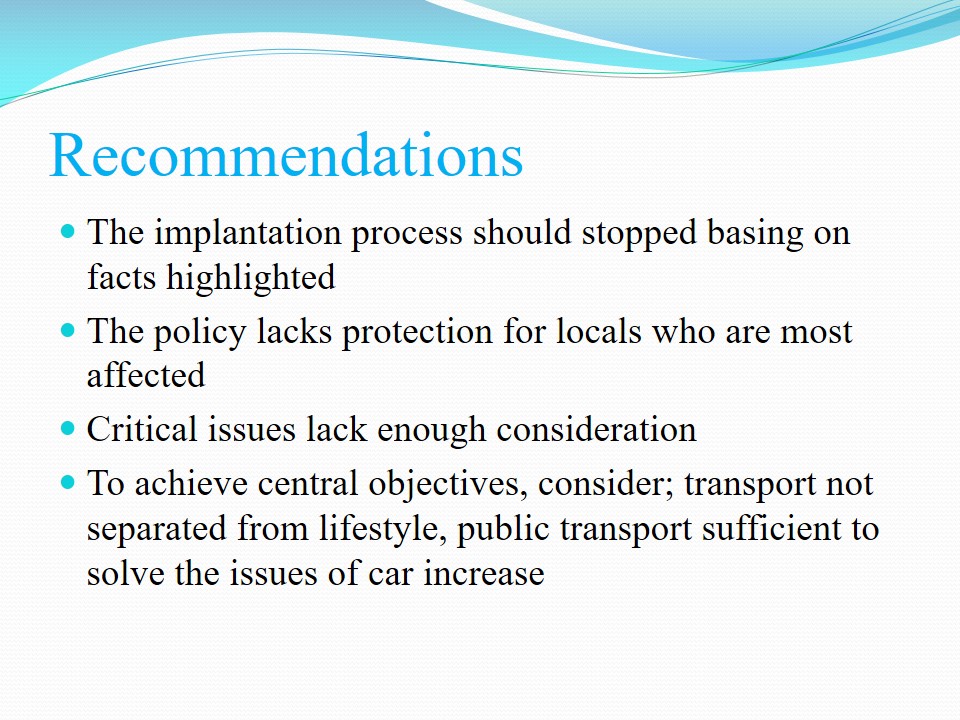
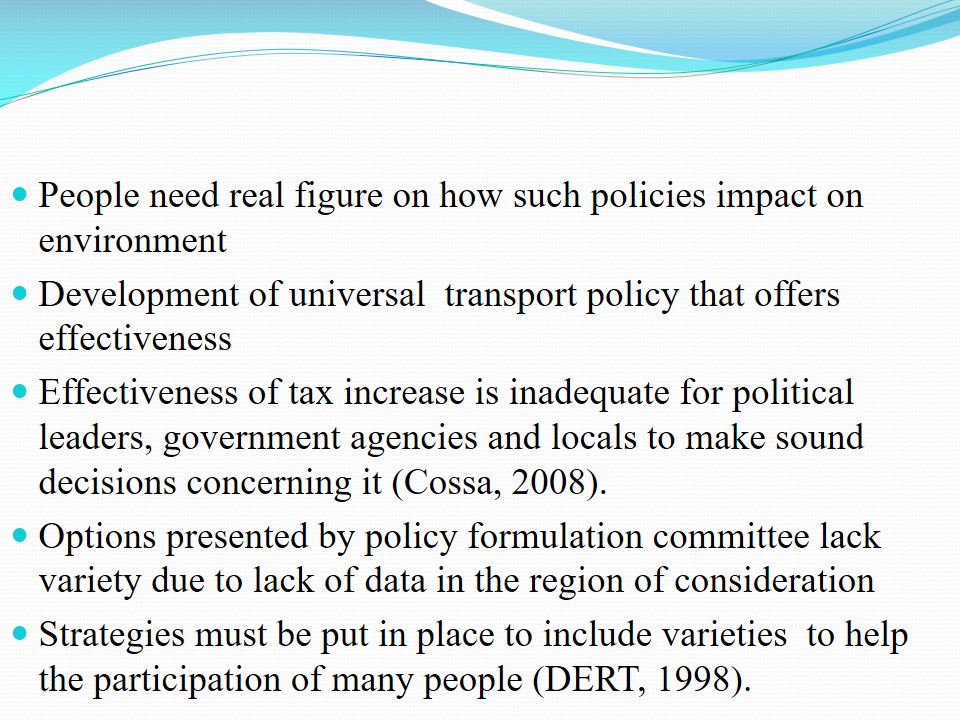
Conclusions
- Chosen perspective strengths dissects the inter-related issues of climate, local needs and flexibility of modes of transport present.
- This is drawn from the background information on the failure of the transport policy.
- In observation, this approach is not the best in handling critical issues with huge impacts on the society (Weir, 1998).
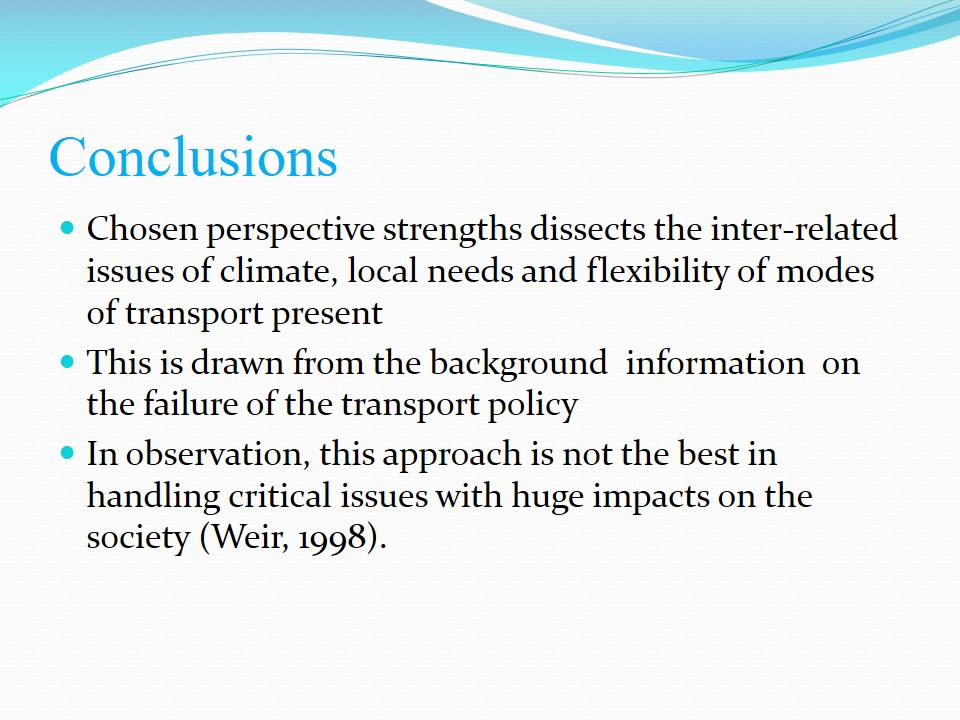
References
Brklacich, M., Chazan, M., & Dawe, A. (2007). Vulnerabilities of societies under global environmental change (GEC). Washington, DC: Island Press.
Cossa, L. (2008). Taxation: Its principles and methods. New York, NY: Biblio Bazaar LLC.
De Young, R. (1996). Some psychological aspects of a reduced consumption lifestyle: The role of intrinsic satisfaction and competence. Environment and Behavior, 28 (1) 358-409.